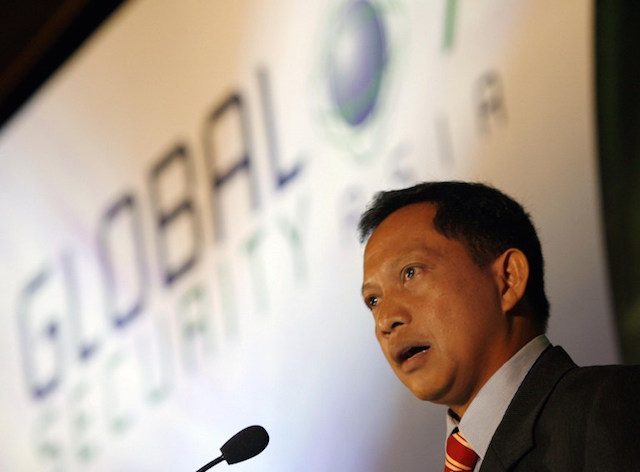SUMMARY
This is AI generated summarization, which may have errors. For context, always refer to the full article.

JAKARTA, Indonesia – New police chief Tito Karnavian knows that the police force he will inherit suffers from widespread corruption.
In a discussion on Thursday, June 23, the former head of the National Counterrorism Agency described concrete plans and strategies on how he planned to tackle the problem, acknowledging the police force is one of Indonesia’s most corrupt institutions.
Karnavian said he planned not only to address corruption internally, but externally as well.
External corruption he said, is due to “bureaucracy and other parties.” To tackle these cases, Karnavian said he plans to introduce a quota system for the number of cases investigated by the police.
He said departments that investigated and hit their target number of cases would be rewarded, while those that failed their tasks would face consequences.
“On the other side of the coin, if you fail to do so, punishment will be received like transfer of leadership elsewhere or demotion,” he said.
Internal corruption
In terms of internal corruption, Karnavian said he would not want “to start too abruptly,” saying there were “root causes” to this corruption – specifically the need to improve their welfare.
He highlighted the need to improve and promote the welfare of the officers “stage by stage, year to year renumeration”.
Karnavian said operational costs are extremely limited and insufficient.
“Only 28% of our budget is used for operations. This is insufficient for the headquarter and district level,” he said, emphazing the need to lobby the President and other ministries to convince them that increasing the budget would be a way to counter corruption.
Additionally, he said only 14% of police officers are provided their housing needs, another problem that may lead to corrupt practices.
Last year, after pressure from the police force, President Jokowi increased the budget of the police by hiking the salaries of officers by 6%. But this was only a small portion of what the police force demanded from their proposal.
New funding
During his term, Tito plans to create new source of funding for the police.
He admits that it is hard to rely on the national budget for the police force and he plans to reach out to local governments instead.
“It is hard to rely on our national budget because the national government depends on tax and so on. So we need to personally lobby the local governments that are rich like Jakarta, which has an annual budget of 76 billion rupiah,” said Karnavian.
He said he spoke to Jakarta Governor Basuki Tjahaja Purnama, better knows as Ahok, who asked him for a list of police complexes that are still in slum areas, in order to convert those into more livable flats.
Aside from local governments, Karnavian also said he was exploring the possibility of receiving funds from the private sector, using companies’ Corporate Social Responsibility (CSR) budget – as long as there would be no conflict of interest.
He also suggested simplifying the process for police officers reporting their wealth and assets, arguing that some officers may be intimidated by the difficulty and the complexity of the process – preventing them from filing reports in the first place.
In an interview with Rappler, Corruption Eradication Commission Deputy Chairman Laode M. Syarif said “one of the main pull down factors in indonesia’s (Corruption Perception Index) score is corruption in law enforcement agencies.”
The 2016 index gave Indonesia a score of 36 – lower than many of its Southeast Asian neighbors. A score of 0 indicates a high degree of public corruption, while a reading of 100 would mean the absence of corruption in a country. – Rappler.com
Add a comment
How does this make you feel?
There are no comments yet. Add your comment to start the conversation.